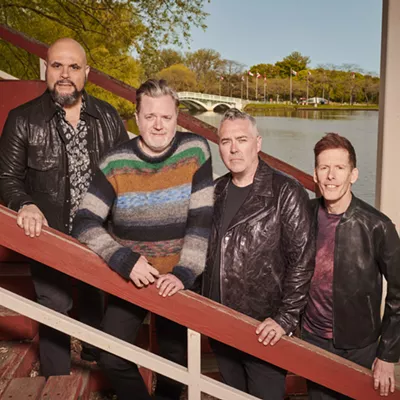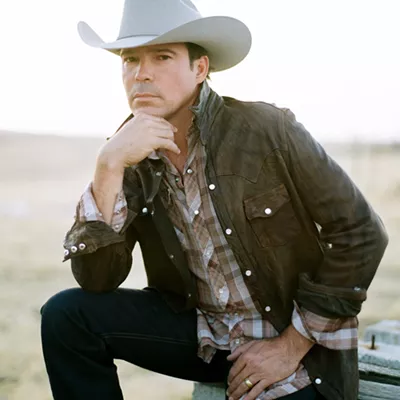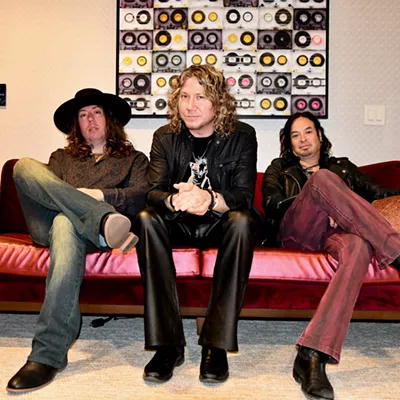The reason is it's painfully boring. To weigh in with more than a sound bite, you've got to navigate legislative language that even the most impassioned players in the debate admit is difficult and dry. But all that legalese is hiding an ugly truth: The music industry, led by the Recording Industry Association of America, has once again enlisted the government to do its dirty work. This time it may very well have derailed the evolution of radio into the digital age.
On March 2, the Copyright Royalty Board (CRB)--three judges who determine who pays how much for the use of copyrighted materials--handed down new regulations for webcasters to cover the period from 2006 until 2010. (Webcasting can mean anything from an online simulcast by a conventional broadcaster to a customizable streaming service like Pandora to a personal Internet radio station run from a laptop.) The rates are the same as those proposed by SoundExchange, a royalty-collection agency that spun off from the RIAA in 2003 and still has RIAA employees on its board; in fact, the judges appear to have accepted the industry's highball opening offer.
An appeal for a rehearing, made by a coalition including National Public Radio, was rejected April 16. If back royalties based on the new rates come due July 15 as scheduled, experts in the field say it's likely that even giants like Yahoo! and AOL will shut down their webcasts.
Presently, small webcasters pay a percentage of revenue as royalties, and big ones pay per listener-hour. The new ruling requires an across-the-board switch to a per-play model and a steep rate hike. The retroactive rate for 2006 is $.0008 for each song, increasing to $.0019 by 2010, paid not just per play, but per listener. Chicago-based webcasting company AccuRadio (accuradio.com), which last year posted revenues of roughly $400,000 and has an average audience of just a few thousand, would owe about $600,000 for 2006 under the new rules. Another regulation sets a $500 minimum fee per channel--not a big deal for AccuRadio, which has 300 channels or so, but bad news for services like Pandora, where millions of users can create up to 100 channels apiece.
AccuRadio was launched in 2001 by some of the same people who founded the Radio and Internet Newsletter, an industry news site (kurthanson.com) that's been around since 1999--basically since there's been a webcasting industry for it to report on. Paul Maloney is editor of RAIN and vice president of music development at AccuRadio; Daniel McSwain is assistant editor at RAIN and music director at AccuRadio, and also runs his own site, Future Perfect Radio. As longtime webcasters and observers of the business, they know as much about the current situation as anybody. As a couple of guys about to lose their jobs, they are pissed.
Many members of Congress, says Maloney, "are very much not in touch with the cutting edge of technology. And I say 'cutting edge,' but even things that people take for granted day to day. Cell phones, Blackberries, instant messaging." Remember Ted Stevens, the Republican senator from Alaska, and his "series of tubes"?
And because they don't understand the digital world, Maloney says, they're easily manipulated by lobbyists for digital businesses. The DMCA is one famous result: It gives the home-electronics and entertainment industries unprecedented control over how consumers can use products they've legally purchased and even criminalizes acts that don't infringe on copyright, making a fair-use copy of a song. "Lawmakers don't write these laws. Lobbyists write these laws," says Maloney.
In 1995, webcasting existed mostly in theory, but the RIAA was already lobbying Congress to regulate it. Existing laws didn't allow labels to collect per-performance royalties when their songs were played on the radio--composers and performers got paid, but labels were considered compensated by the promotional value of the broadcast. The RIAA argued that Internet-based radio would be a completely different animal and persuaded Congress to pass the Digital Performance Right in Sound Recordings Act of 1995, which lifted the per-performance ban for webcasting based on the labels' claim that it "has no promotional effect on record sales."
According to a recent survey by media-research group Arbitron, roughly 52 million Americans now listen to webcasts each month (the satellite-radio industry claims just 14 million subscribers). But John Simson, executive director of SoundExchange, says he still doesn't believe that Internet radio helps music sales, as he told an interviewer for online trade publication RoyaltyWeek: "Even though you don't get the exact song you want, there are so many channels and so many people out there that you can pretty much get what you want when you want it or that you're (sic) listening experience is one that is so rich that you don't need anything else."
Considering that the RIAA is supposed to help the major labels, its efforts to squelch Internet radio are counterintuitive--there's no hard data about webcasting and record sales, but it just seems reckless to dismiss 52 million listeners. "If you were to talk to someone who works in promotion for a major record label off the record," Maloney says, "I'd bet you they'd agree with us."
He suspects the majors support the CRB ruling because they're planning to set up backdoor deals with webcasters. Nothing in the law forbids copyright holders from waiving or modifying royalty fees on a case-by-case basis, which a label could agree to do in exchange for a promise that a webcaster would play certain artists. This would allow the industry to "dictate the look and sound of playlists," according to McSwain. "It takes away any autonomy from webcasters and puts it completely in the labels' hands."
McSwain and Maloney are also pretty sure the new royalty rates are an indirect way for the majors to strike a blow against the indies. Tech-savvy early adopters--those most likely to use webcasts--tend to listen to music from outside the mainstream. SoundExchange denies that its goal is to shut down Internet radio, but the fact remains that doing so would eliminate an outlet where indies have a big leg up on the majors. Though the RIAA only represents the Big Four, SoundExchange collects royalties on behalf of all copyright holders, whether they claim them or not--which means it can take action even against webcasters who traffic exclusively in content from indie labels that would prefer to let things slide. To prevent such action, a webcaster would have to negotiate exceptions with each label individually.
"To eliminate the amount of digital competition in a field where (the majors) are not established, instead of trying to get into it, they're saying, 'Fuck it. Just go away, and we'll keep doing what we're doing,'" says McSwain. "If you don't stop this thing from happening now, there's no telling what future rulings will take away from you."
What might stop it is the Internet Radio Equality Act, HR 2060, introduced April 26 by Washington Democrat Jay Inslee and Illinois Republican Donald Manzullo. The law would nullify the CRB's ruling and put webcasting on the same footing as satellite radio--that is, with a royalty rate of .33 cents per listener-hour or 7.5 percent of total revenue, chosen by the provider. (According to estimates by tech site BetaNews, AOL would owe $916,000 for 2006 under HR 2060, as opposed to $23.7 million under the CRB's scheme.) July 15 may seem a ways off--until last week, the deadline was May 15--but Maloney and McSwain urge everyone to call their representatives in Congress now.
If we lose webcasting, we'll lose one of the best resources available to people who really care about music. As Maloney puts it: "When was the last time you heard anyone say, 'I'm pretty happy with the choices on AM and FM, and I don't need anything else'?"






